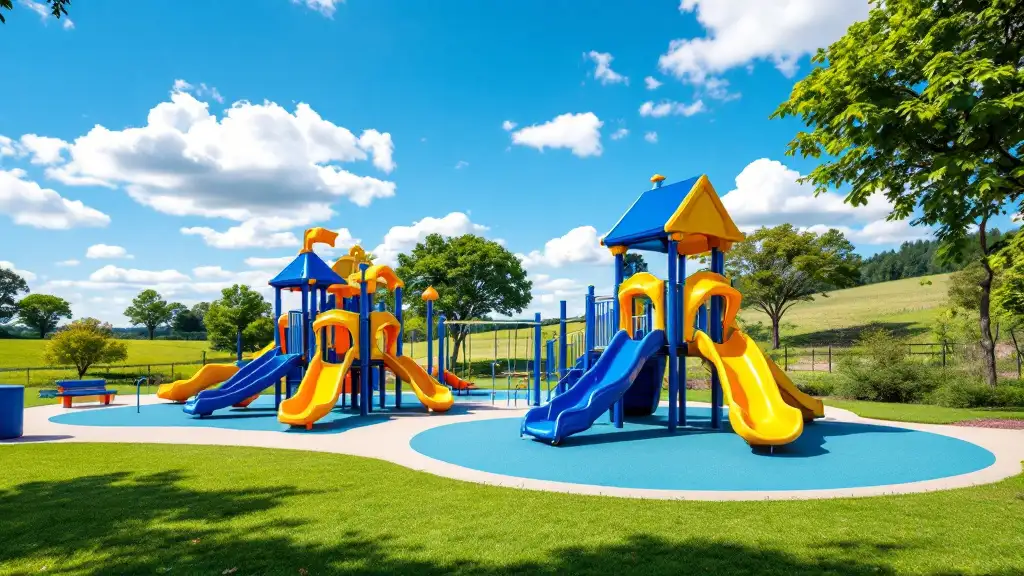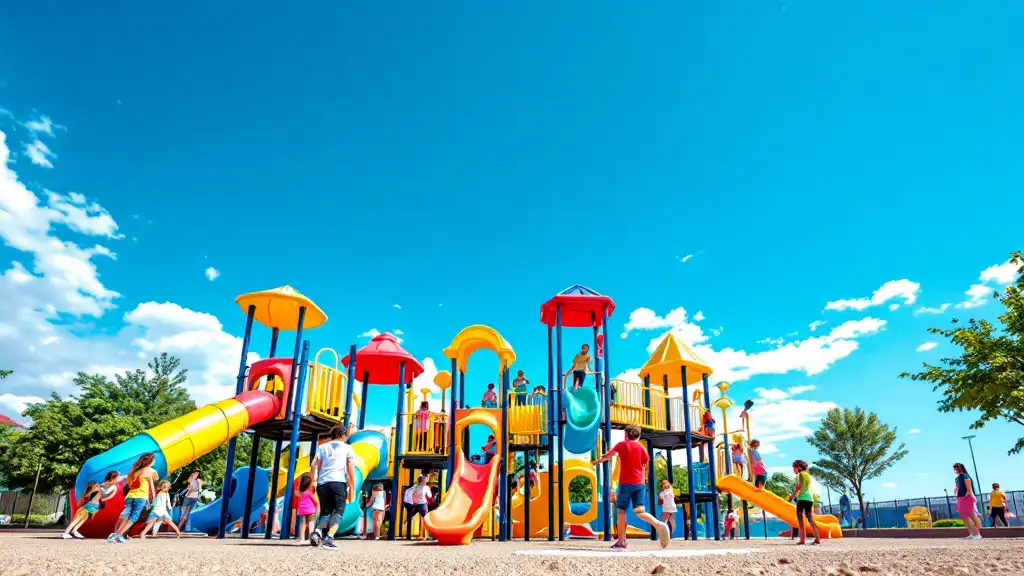
Understanding Peer Support Networks and Their Importance
Peer support networks are vital resources for adults with disabilities, fostering community, empowerment, and shared understanding. These networks connect individuals who have lived experience with similar challenges, offering emotional support, practical advice, and opportunities for advocacy and social connection. As support systems evolve and become more accessible, learning how to access and effectively engage with these networks can significantly enhance individuals' quality of life and independence.
Core Principles of Peer Support

What are the core principles of peer support?
Peer support is founded on several fundamental principles that distinguish it from traditional clinical services. One of the main principles is a recovery-oriented practice, which emphasizes hope, empowerment, and the belief that individuals can lead meaningful lives despite challenges related to mental health, disabilities, or substance use.
A person-centered approach is also essential. This means tailoring support to the individual’s unique needs, preferences, and goals, respecting their autonomy and self-determination. Participation in peer support is always voluntary, ensuring that individuals engage at their comfort level and maintain control over their recovery journey.
Trauma-informed care is another cornerstone. Recognizing that many individuals have experienced trauma, peer support emphasizes safety, trustworthiness, and empowerment, avoiding re-traumatization and fostering a secure environment.
At the heart of peer support is mutuality and shared lived experience. Peers—people with personal experience of disability, mental health, or substance use challenges—connect on a genuine level. They foster relationships based on empathy, understanding, and equality, rather than authority. This shared background helps build trust and authenticity.
Overall, peer support is designed to promote resilience, community integration, and self-advocacy. It utilizes mutual aid, connection, and self-help tools, aiming to improve quality of life, reduce hospitalization, and inspire hope through authentic, empathetic relationships grounded in shared experiences.
Accessing Peer Support Networks Online

How can adults with disabilities access peer support networks online?
Adults with disabilities now have a variety of ways to connect with peer support networks through online platforms. Many organizations offer virtual support groups, webinars, and extensive resource libraries that help individuals find community, share experiences, and learn new skills.
For example, Access Living, a prominent provider of independent living services, hosts free online peer support groups covering diverse topics such as general wellness, fitness, crafts, and gender-specific issues. These groups can be easily accessed using a phone, tablet, or computer after registering on their platform. This flexibility makes it easier for individuals with mobility challenges or geographic limitations to participate regularly.
Similarly, the National Alliance on Mental Illness (NAMI) offers online support groups and educational resources tailored for adults experiencing mental health challenges. These forums facilitate connections with peers who understand mental health struggles, fostering a sense of community and shared advocacy.
Platforms like PeerRxMed connect individuals with peer support and mental health resources, often through virtual meeting spaces or helplines. The Physician Support Line and organizations such as the Mental Health Association and SHARE 24/7 provide accessible online networks aimed at nurturing community and promoting mental wellness.
Most of these services are accessible via multiple devices, including smartphones, tablets, and computers, allowing users to choose the most convenient method. Registration is typically straightforward, sometimes requiring just an email or basic contact information, reducing barriers to entry.
Online peer support networks are crucial for maintaining social connections, enhancing self-advocacy, and accessing information about community resources. They help bridge gaps in traditional service delivery, especially for individuals in remote or underserved areas.
Resources like these empower adults with disabilities to participate actively in their communities and promote independence and well-being through accessible, flexible online environments.
More Resources
| Platform/Organization | Features | Access Method | Target Audience |
|---|---|---|---|
| Access Living | Virtual peer groups, resource library | Phone, tablet, computer, registration | Adults with disabilities, caregivers |
| NAMI | Support groups, educational webinars | Online platforms, apps | Adults with mental health challenges |
| PeerRxMed | Peer connection, mental health support | Telehealth services, online groups | Adults seeking peer support in health |
| SHARE 24/7 | Crisis support, online community | Phone, website | Adults experiencing mental health crises |
| Mental Health Association | Support groups, resource materials | Various online channels | Adults with mental health or disabilities |
Getting Started: Opening a Peer Support Group

How do I open a peer support group?
Starting a peer support group involves several strategic steps to ensure its success and sustainability.
First, gaining the support of stakeholders such as community organizations, healthcare providers, and potential members is essential. Their buy-in helps in resource allocation and broader community acceptance.
Next, designate a team leader who will coordinate the group's activities. This person will facilitate meetings, manage outreach, and serve as the main contact point.
Recruit members who are interested in participating, ideally individuals with lived experiences related to the group's focus. This diversity helps in sharing authentic insights and provides varied support.
Develop your support team by providing training on peer support principles, active listening, and confidentiality. Connecting with existing resources, such as certification programs by organizations like disABILITY LINK or state-certified peer specialists, can offer valuable expertise.
Training should also include how to build referral networks with mental health providers, disability services, and community resources. These partnerships are crucial for connecting members with additional support when needed.
Conduct outreach activities through community events, social media, and partnerships with local agencies to raise awareness about the group. Tailoring outreach to reach diverse populations ensures inclusivity.
Creating a safe and welcoming environment encourages ongoing participation. Clear guidelines on confidentiality and respectful communication foster trust.
Regular meetings, ongoing promotion, and evaluating member needs help in maintaining the group's relevance and positive impact.
By thoughtfully planning these steps, you can establish a strong foundation for a peer support group that empowers its members and fosters community resilience.
Benefits of Peer Support for Adults with Disabilities

What are the benefits of peer support networks for adults with disabilities?
Peer support networks are a vital resource for adults with disabilities, offering numerous advantages that significantly enhance their quality of life. At their core, these networks provide a sense of belonging and acceptance. When individuals share their experiences and challenges, they realize they are not alone, which can be incredibly comforting and empowering.
One of the main benefits is the improvement of mental health and emotional resilience. Engaging with peers who understand their situation helps reduce feelings of isolation and loneliness. Many participants report feeling more hopeful and optimistic about their future when they connect with supportive communities.
Additionally, peer support fosters increased self-confidence and self-esteem. Through shared success stories and encouragement, individuals learn to believe in their abilities and advocate for their needs. For example, peer supporters—those with lived experience—serve as role models and mentors, demonstrating achievable goals and effective strategies for independence.
Developing social skills is another key aspect. Participation in peer groups enables individuals to practice communication, active listening, and problem-solving skills. These interactions can translate into improved confidence in everyday situations and enhanced capacity to navigate social environments.
Support networks also promote inclusion and community involvement. By connecting adults with disabilities to broader social activities, employment opportunities, and community resources, peer groups help break down barriers. They encourage participation in local events, advocacy initiatives, and peer-led programs, fostering a more inclusive society.
Overall, peer support plays a crucial role in empowering adults with disabilities to live more independent, fulfilling lives. Through mutual sharing, mentorship, and community building, these networks support emotional well-being, personal growth, and social integration, making a tangible difference in participants' lives.
| Benefit | Description | Impact on Lives |
|---|---|---|
| Emotional resilience | Sharing experiences and receiving support reduces stress and anxiety. | Greater ability to cope with challenges. |
| Reduction of isolation | Safe spaces for connection help diminish loneliness. | Improved mental health and well-being. |
| Confidence and self-esteem | Role models and achievements boost self-belief. | Increased independence and advocacy skills. |
| Social skills and advocacy | Practice in group settings enhances communication and self-advocacy. | Better integration and self-determination. |
| Community involvement | Engagement in local activities fosters inclusion. | Stronger community ties and support networks. |
Resources, Programs, and Assistance to Access Support Networks
What resources and programs are available to support adults with disabilities?
People with disabilities have access to a wide range of supports and programs designed to promote independence, recovery, and community engagement.
Federal laws such as the Americans with Disabilities Act (ADA) and the Rehabilitation Act set the foundation for rights, accessibility, and non-discrimination. These laws ensure that individuals with disabilities can access public services, workplaces, and community activities.
Numerous government agencies provide services and funding to assist adults with disabilities. The Rehabilitation Services Administration (RSA) offers vocational rehabilitation funding, helping individuals gain employment and access assistive technologies.
Financial support is crucial for many individuals with disabilities. Programs like Social Security Disability Insurance (SSDI) and Supplemental Security Income (SSI) provide monetary assistance. Temporary Assistance for Needy Families (TANF) and the Supplemental Nutrition Assistance Program (SNAP) help with basic needs such as housing and food.
Health and mental health services are also accessible through federal agencies like the U.S. Department of Health and Human Services (HHS) Office on Disability. These resources include mental health programs tailored for people with disabilities and trauma-informed care practices.
Housing assistance is available through Fair Housing laws and U.S. Department of Housing and Urban Development (HUD) programs, which support accessible and affordable living options.
Community organizations play a vital role in supporting adults with disabilities. The Arc, a nationwide organization, advocates for disability rights and provides information on services and community programs.
Independent Living Centers deliver personalized support, including peer support programs, advocacy, and skills training to help individuals live independently.
Online resources and support groups also offer guidance, peer mentorship, and a platform for people with disabilities to share experiences and solutions.
Who is eligible and how can individuals participate?
Eligibility for these resources varies. Many government programs are means-tested or require medical documentation of disability. For example, SSDI and SSI require proof of a qualifying disability and work history for SSDI.
Community-based programs and organizations typically welcome anyone seeking support, with some offering targeted services for specific disabilities or age groups.
Participation often begins with an application process, medical assessments, or referrals from healthcare providers, case managers, or family members.
Support services can include one-on-one coaching, group sessions, and virtual meetings, all aimed at empowering individuals to achieve their personal goals.
By leveraging these resources and engaging with community organizations, adults with disabilities can enhance their independence, access necessary services, and foster meaningful connections within their communities.
Empowering Adults with Disabilities Through Peer Support
Accessing peer support networks is a powerful step toward greater independence, community integration, and emotional well-being for adults with disabilities. By understanding core principles, exploring online platforms, learning how to establish new groups, and utilizing available resources, individuals can build meaningful relationships that foster resilience and self-advocacy. These networks serve as vital tools in overcoming barriers, reducing isolation, and promoting a vibrant, inclusive community where adults with disabilities can thrive.
References
- Peer Support Services - Texas Health and Human Services
- Peer Support Programs / Trainings - disABILITY LINK
- Peer Support Services | Independent Living, Inc.
- Disability Peer Support Groups at Access Living - Get Involved
- Making a Difference: Peer Support in IDD Services - Integral Care
- Peer Support for Persons with Disabilities| NEILS
- Peer Support - TCDD - Texas Council for Developmental Disabilities
- Serving an Underserved Population: Peer Support, Disability, and ...












